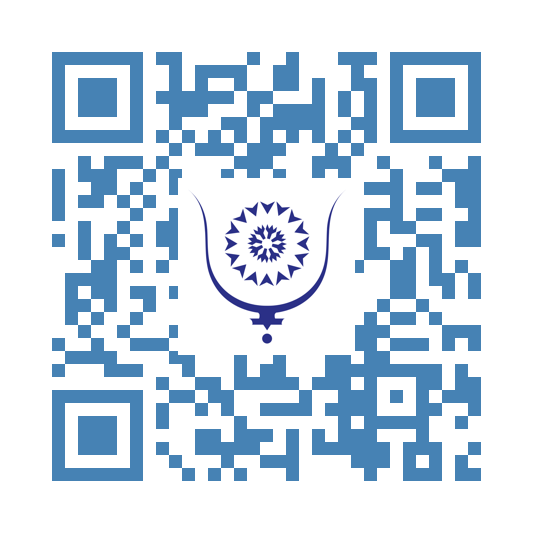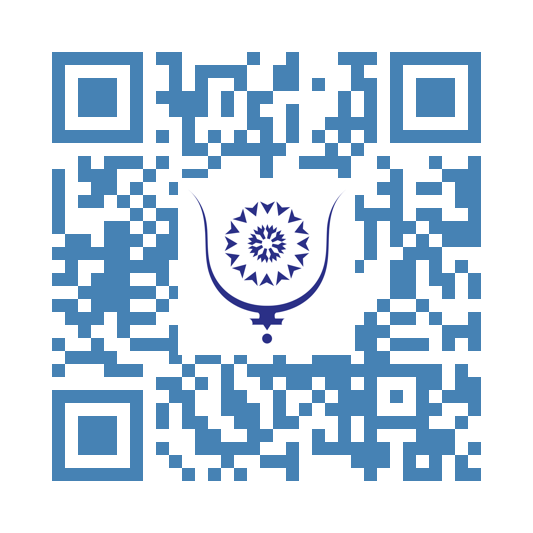Why doing more makes life worst?
739
it is strange how 'busy' has become the default answer to 'how are you?'. Somehow, being overwhelmed turned into a sign that we are doing something right. But beneath that there is often a quiet exhaustion we do not talk about.
But productivity, in itself, is not the problem and setting goals and working toward them can be meaningful and energizing. The problem begins when doing more becomes the only way we measure our worth or value. When a day without an achievement feels wasted or when we cannot watch a movie, take a walk, or just sit in silence without feeling guilty for having a rest or thinking about what else we should be doing.
We start treating our lives like projects that need constant optimization. Every task and every hobby must be useful, every hour must be efficient. Even self-care becomes something to perfect. Instead of asking whether we are happy or fulfilled, we ask whether we have done enough. And the definition of enough keeps expanding..
There is also something deeper happening.
Sometimes, staying busy can become a way of avoiding ourselves. When our minds are always occupied, we don’t have to sit with uncomfortable thoughts or unanswered questions. and productivity can feel like control. As long as we are achieving something, we don’t have to face the fear that we might not be enough without it. that is the issue.
But maybe life is not a performance review.
Some of the most important parts of being human cannot be measured in output. They do not show up on a checklist. They require time that is not optimized and moments that are not productive.
So doing less does not mean giving up on ambition. It means remembering that achievement was never meant to replace living. Sometimes the most radical thing we can do in a world obsessed with output is to pause without guilt. Not because we have earned it, but because we are human.
Share:
Why doing more makes life worst?
copy:
https://bluwr.com/p/862343763
The Emotional Algorithm: Are we training our brains like AI?
744
What if emotions aren't random, but learned?
We usually assume, anxity, happiness or sadness simply appear as natural reactions to life. But what if our emotional responses could be shaped the same way artificial intelligence is shaped? Through repetitions, patterns and exposures. AI learns from the data it consumes, and over time, it becomes better at predicting outcomes based on what it seen before. In a similar way, the human brain learns from what it experiences every day. The more often we react with stress, overthinking, or fear, the more our mind strengthens those pathways, until they become automatic. Without realizing it, we may be training our emotional system every single day.
This is where the concept becomes powerful. Our daily life is our 'training dataset'. The conversations we engage in, the content we scroll through, the way we interpret situations, and even the thoughts we repeat in our minds all contribute to what our brain learns to expect. If we constantly consume negativity, compare ourselves to others, or assume the worst, the brain starts to treat these patterns as normal. Just like an algorithm trained on biased data will produce biased results, a mind trained on stress will start to generate stress even in moments that don’t truly require to be stressed in.
The most dangerous part is that emotional patterns create feedback loops. If we believe the world is unsafe, we will definitely notice every sign of danger, and over time, the brain becomes incredibly efficient at producing the same emotional outputs, not because they are accurate, but because they are familiar. And familiarity often feels like truth. This is why breaking negative habits is so difficult.
But the good thing is that if emotions can be trained, they can also be retrained. Which means we can change our emotional algorithm by changing its inputs. This doesn’t mean forcing positivity or pretending life is PERFECT, but becoming more intentional about what we feed our mind. And this can be done by starting with simple habits: questioning repetitive thoughts, limiting toxic environments, practicing mindfulness, and building habits that create calmer mental pathways. In the same way AI improves with better data, our emotional world improves when we choose better mental patterns. So, I think the real question is not why we feel the way we do, but the real question is: what have we been training our mind to become?
Share:
The Emotional Algorithm: Are we training our brains like AI?
copy:
https://bluwr.com/p/862299770
The philosophical debate: Can AI ever truly feel?
9887
When we ask the question of whether AI can feel, we are confronting the mystery of what makes us human: To be able to feel. But emotions are not just data points, they are much more complex.
If an AI neural networks processes inputs and outputs in a way that mirrors human responses, can we say that it has emotions? After all human emotions are the results of electrochemical processes, why couldn't silicone-based systems achieve something similar?
and what even is a feeling? If we say that emotions are just chemical reactions in our brain, then no, AI cannot have feelings, it doesn't have a brain like ours. But here is the weircd part: how can we be sure that an AI will never experience something like that?
if an advanced AI system developed complex self-models and the capacity to experience its own state changes such as "happiness" or "pain," we might need to rethink about our definition of feeling. Others counter that without a living body, any AI emotion would be an abstract imitation.
Perhaps the most revealing aspect of this debate is what it says about us. Our inability to determine whether AI could ever feel reflects our own limited understanding of consciousness and understanding of our feelings. The fact that we can imagine machine sentience, while doubting it at the same time, highlights how little we truly grasp about the nature of experience itself. Until we solve the riddle of how matter gives rise to mind, the question of AI emotion may remain not just unanswered, but unanswerable in absolute terms.
This uncertainty carries profound implications. If we, someday create an AI that claims to feel, how would we verify it? Would we be able to trait it as a human being and grant it rights, or dismiss its assertions as clever programming? The dilemma mirrors historical debates about animal sentience or even the moral status of other humans reminding us that consciousness, in any form may always be partially inaccessible, known only to the entity experiencing it.
In the end, the AI emotion debate is less about technology than about philosophy's oldest puzzle: What does it mean to feel, to be, to exist as a conscious entity? Until we can answer that, the line between simulation and sentience may remain as elusive as consciousness itself.
Share:
The philosophical debate: Can AI ever truly feel?
copy:
https://bluwr.com/p/179451898
The Happiness Paradox
10339
Many people spend their lives chasing happiness through success, wealth, or perfect jobs only to find it remains just out of reach. But what if happiness isn’t something you need to find at all? Research suggests that joy isn’t a destination; it’s our natural state, often buried under layers of stress, unrealistic expectations, and negative thought patterns. True contentment comes not from adding more to our lives, but from removing what blocks it.
At the core of lasting happiness is a simple truth: suffering arises when reality doesn’t meet our expectations. If you expect a smooth day and everything goes wrong, frustration follows. But if you adjust your mindset accepting that setbacks are part of life you reclaim peace. The key isn’t controlling external events but mastering your perception of them.
True happiness often feels elusive because we misunderstand its nature. Rather than being something we must chase or achieve, research suggests happiness is our default state - temporarily clouded by layers of stress, unrealistic expectations, and negative thought patterns. The paradox lies in recognizing that lasting contentment comes not from adding more to our lives, but from skillfully removing the mental obstacles that obscure it. This realization fundamentally shifts how we approach daily living.
When life inevitably diverges from our imagined scripts, we experience frustration. However, the power lies not in controlling external events, but in mastering our internal responses. By consciously adjusting our perceptions and accepting life's inherent unpredictability, we reclaim a natural state of peace. This mental flexibility transforms obstacles into opportunities for growth.
Ultimately, happiness isn't a distant destination requiring perfect circumstances. It's the natural condition that emerges when we stop obscuring it with unnecessary mental clutter. By recognizing and releasing rigid expectations, questioning automatic thoughts, and embracing life's imperfections, we clear the way for contentment to arise spontaneously. This understanding liberates us from the exhausting pursuit of happiness and allows us to experience the joy that was present all along.
This perspective on happiness is beautifully articulated in Mo Gawdat's book "Solve for Happy," which explores these concepts in greater depth through both personal experience and scientific research.
Share:
The Happiness Paradox
copy:
https://bluwr.com/p/151044851
Striking the perfect balance? Mastering academic demands while thriving in the personal life.
11773
With the hustle of academia, it’s very easy to focus only on what’s next—a looming deadline, the next exam, or an upcoming conference. Before you know it, those academic demands can creep into every corner of your life, making it tough to separate “work time” from “me time.” That’s why setting boundaries is so important. Whether it’s not answering emails after a certain hour or taking a proper lunch break, clear limits protect your mental health and nurture your relationships.
Making Time for What Matters:
One of the best ways to balance your academic workload with a fulfilling personal life is by using solid time management skills. It goes beyond just buying a planner—you have to create a realistic schedule, set achievable goals, and regularly check your progress. When you block out specific times for studying or research, it frees your mind to fully enjoy your personal pursuits later. For example, I started writing down all my meetings, and deadlines on a simple calendar, then penciled in “personal time” for reading, relaxing, or a quick break. Having those scheduled moments made it easier to focus on my tasks when it was actually “work time.”
Learning to Say “No”:
Another challenge I faced was learning to set limits with people around me. In the past, I’d say “yes” to every study group or committee meeting—leaving little space for rest. But saying “no” is sometimes the healthiest choice you can make. If a project isn’t urgent or a meeting doesn’t truly need your input, it’s okay to pass. By politely declining, you protect your mental health and keep your workload manageable.
Small Breaks, Big Difference:
Taking short breaks was also a lifesaver for me. Even a five-minute walk or a quick chat with a friend can recharge your brain, especially when you’re buried in readings or writing papers. When I tried to power through for hours without pausing, I ended up feeling overwhelmed and frustrated. Now, I schedule small breaks throughout my day.
Celebrating Small Wins:
Finally, I learned the power of celebrating small milestones. After finishing a tough chapter or hitting a key research goal, I give myself a little treat—like a coffee date with a friend or a short break. Recognizing these small wins reminds me that progress comes in steps, not leaps. It also keeps me motivated for the next challenge. By honoring each success, no matter how small, I stay positive and energized, even when juggling academic deadlines and personal responsibilities.
Share:
Striking the perfect balance? Mastering academic demands while thriving in the personal life.
copy:
https://bluwr.com/p/83442196







